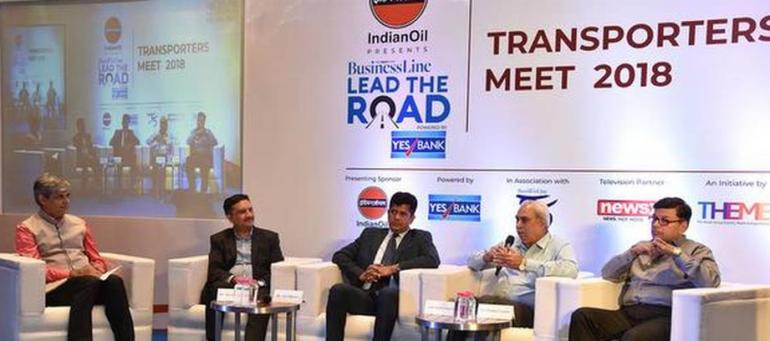30
Oct
2018
With RBI relaxing norms, truckers’ working capital needs will be fully met
Availability of working capital for the road transport sector is slowly being addressed, thanks to the intervention by the RBI.
Earlier, there were restrictions on bank lending to NBFCs (Non-Banking Financial Companies), which in turn lend to transporters. However, the Reserve Bank of India has increased the Liquidity Coverage Ratio (that limits bank lending) to 13 per cent from the earlier 11 per cent. Slowly, the gap in working capital availability is being addressed due to this easing of norms, said Anil Menon, National Business Head, Commercial Vehicle Loans, YES Bank.
“Also, the RBI is purchasing US dollars periodically to arrest the rupee’s fluctuations. This, in turn, leads to liquidity infusion into the market. With this two-pronged strategy by the RBI, there should not be any concern among transporters on working capital availability,” he said participating in a panel discussion on the ‘Road Ahead’ for the transport sector.
The panel discussion was part of ‘Lead the Road’, a ‘Transporters Meet’ organised in Jaipur on Friday by BusinessLine to highlight various issues related to transporters.
The sixth edition of the event was presented by Indian Oil Corporation and powered by YES Bank with NewsX as the television partner. The event provides a platform, by bringing various stakeholders involved in the road transportation sector, including truck operators, oil companies, banks, and ÑBFCs, to discuss issues and suggest solutions to the problems faced by the sector.
Diesel price is the biggest concern for transporters whose survival is at stake as the fuel price has increased rapidly in the last few months, said Inder Kumar Chaddha, President, Jaipur Transport Operators Association.
“I urge the government to bring fuel price into the Goods and Services Tax net,” he said, getting instant support from a section of the audience. “With 2-3 per cent margins, it is difficult to take the additional burden of diesel price rise. In the last four years, many have left this business and the next generation is unwilling to join this industry due to the many uncertainties,” he added.
Freight concerns
Om Prakash Gupta of Professional Automotives, Jaipur, said freight rate not increasing is a major concern for transporters. “If we go to a client seeking an increase in freight, they say that some other transporter is offering a lower rate. They threaten to go to him. Since there is severe competition among transporters, freight rate is not rising.”
It has not been increased since 2013. Clients are not taking into consideration the rising diesel price in their freight calculation. Today, finance is available to procure vehicles. However, after purchasing the vehicle, the owner encounters many problems, including working capital, he said.
Sanjeev Gupta, Chief Manager (Fleet Marketing), Rajasthan, IOC, said the fluctuation in fuel price was based on movement of international crude price and also due to fluctuation in the rupee-dollar rate. It is difficult to predict what the rates will be. “I hope the rate becomes favourable to consumer and the country,” he said.
Reasons for hike
Multiple factors such as a drop in oil production by Venezuela; cartelisation by OPEC countries, who have not increased their production, and sanctions by the US against Iran have restricted supplies, leading to fuel price increase, he said.
Shishir Sinha, Senior Deputy Editor, BusinessLine, moderated the panel discussion.
In the backdrop of rising fuel prices, lower freight rates and shortage of drivers, the event assumes significance and provides a platform to discuss these issues for this critical sector.
Nearly one crore trucks criss-cross the country carrying goods, including essential commodities, fruits and vegetables. Any disruption in their operations can cripple the economy.
The first in the series of 10 Transporters Meet was held in June at Namakkal, the hub of the trucking industry in Tamil Nadu, followed by Kochi, Vijayawada, Hyderabad and Pune.


